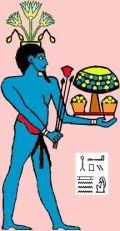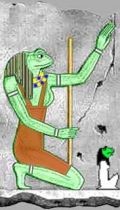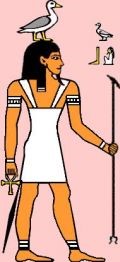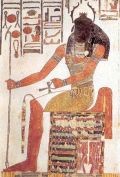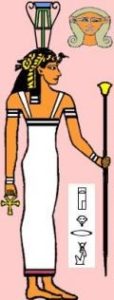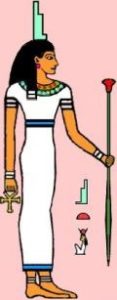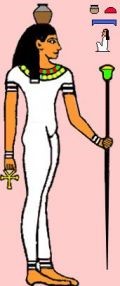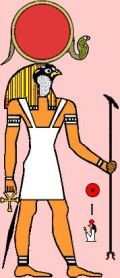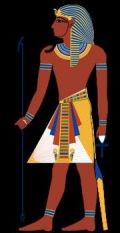TODAY’S HEADLINES from today’s Old Testament reading from the One Year Bible:
- Moses and Aaron return to Pharaoh: Aaron’s Rod, Turned Snake, Devours the Competition (Exodus 7:8-12).
- Moses warns Pharaoh of Danger to Nation’s Water Supply (Exodus 7:14-18)
- Israeli-Egyptian Negotiations Break Down; Pharaoh Ignores Warning; Nation’s Water Supply Turns to Blood (Exodus 7:20-21)
- Egypt Cannot Work the Magic to Reverse The Curse. Efforts of Court Officials Only Increase Contamination (Exodus 7:22)
- Pharaoh Refuses Israelite Demands (Exodus 7:22-23)
A genealogy is inserted in the narrative of the Exodus story (Exodus 7:13-26) to remind readers that the events that follow involved real people. These events are rooted in history.
“Let my people go says the Lord, the God of Israel!” The story of the Exodus is a defining moment in the history of Israel. It is to be enshrined in their memory. It is to be considered unforgettable.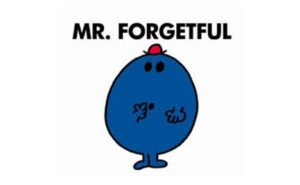
However, the nature of the human heart is to forget the unforgettable. For this reason, the events of the first exodus were to be commemorated annually by the Jewish people in the Feast of Passover, lest they forget what their God had done to make them a free people.
The greater event of the Greater Exodus of The Cross (the death, burial and resurrection of Jesus of Nazareth) delivering us from our bondage to sin, death, and Satan, is to be commemorated regularly by believers from all nations in the ordinance that Jesus gave His disciples. The Lord’s Supper is a eucharistic meal (translated- a meal of thanksgiving) in which His self-sacrifice for our salvation is remembered in our partaking of bread and a cup filled with the fruit of the vine, as a symbol of the once and for all offering of His body and blood in His atoning sacrifice for sin on our behalf. May we never forget what God has done to purchase our freedom!
The ten plagues inflicted by the hand of God will also bring to light the hand and heart of Pharaoh. As in Moses’ demonstration of the leprous hand, Pharaoh’s hand will stubbornly refuse Moses’ demands and resist God’s will because, like all human hearts, it is infected with the sins of pride and unbelief. Only the power of God can bring the cure.
What does the Bible tell us about the purpose of the plagues?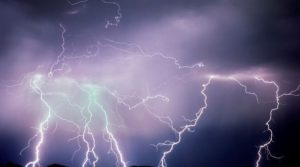
- They are a public manifestation of the Supremacy and the Authority of Yahweh’s Sovereign Power. Even the Egyptian magicians concede that these signs are God’s doing. “This is the finger of God.” (Exodus 8:19). Later in the Book of Exodus, two tables of stone written by “the finger of God” are delivered to Moses (Exodus 31:18; Deut. 9:10). Jesus says that He casts out demons “by the finger of God” (Luke 11:20). He also writes in the ground with his finger when the Pharisees bring before Him the woman caught in adultery, to see if He would condemn her. His act of writing in the ground reflects that He is the author of the Law, that His is the finger of God.
In Exodus 18 we learn that the plagues convinced Jethro, Moses’ father-in-law, and a priest of Midian, that the God of Abraham, Isaac, Jacob and now Moses, was above all powers:
Exodus 18:10-12 (NASB) 10 So Jethro said, “Blessed be the LORD who delivered you from the hand of the Egyptians and from the hand of Pharaoh, and who delivered the people from under the hand of the Egyptians. 11 “Now I know that the LORD is greater than all the gods; indeed, it was proven when they dealt proudly against the people.”
- The plagues were a warning and a judgment upon Pharaoh to bring conviction of sin and provoke repentance. For a moment this proves effective. After the plague of locusts, Pharaoh summons Moses and Aaron and says, “I have sinned against the Lord your God and against you” (Exodus 10:16). But Pharaoh’s heart was again hardened.
- We also see how the plagues were an exposé of the false gods of Egypt and a judgment upon them. (Numbers 33:4)
Paul Johnson in his book “The History of the Jews” writes: “The stories of the plagues of Egypt, and other wonders and miracles which preceded the Israelite break-out, have so dominated our reading of Exodus that we sometimes lose sight of the physical fact of the successful revolt and escape of a slave –people, the only one recorded in antiquity.”
NEW TESTAMENT READING- MATTHEW 18:21- 19:12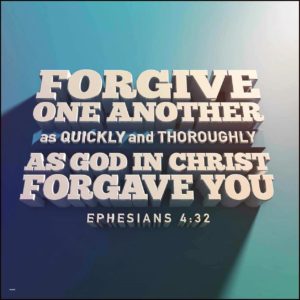
Jesus illustrates the imperative to forgive instantly and completely with an unforgettable story of a man who was completely forgiven and released from a million-dollar debt, but in turn, found someone who owed him a paltry sum by comparison. He mercilessly seizes him, chokes him, and demands that he be paid immediately. When others hear of this, he is brought back to his master to whom he was originally indebted and tortured until he pays back all that is owed. Jesus concludes, “My heavenly father will do the same to you, if each of you does not forgive his brother from his heart.”
How are we at releasing forgiveness towards others? Are we mindful of how merciful God has been to forgive us? Have we forgotten how much our Savior suffered that we might be forgiven of our debt to God’s holy law? Be radical, instant, and total in your forgiveness.
Matthew 19 brings us to the subject of divorce and marriage. Remember John the Baptist had been very outspoken on this subject, especially in relationship to Herod’s divorce and remarriage to his brother’s wife. Herod had him jailed for his outspokenness and eventually John was beheaded. The Pharisees were hoping Jesus would slip up and be similarly removed from the scene.
There was a debate among two popular schools of Rabbinical thought on the interpretation of the phrase “some indecency” in the divorce provision in the Law (Deuteronomy 24:1). The rabbi Hillel held the more liberal view that the phrase “some indecency” could include a trivial annoyance like burning the toast, while the school of Shammai interpreted “some indecency” as meaning something as serious as adultery.
So, the Pharisees ask whether Jesus sides with the liberal view of the school of Hillel, “Is it lawful for a man to divorce his wife for any reason at all?”
Notice that Jesus does not fall into the trap of identifying himself as a follower of Hillel OR Shammai. His reference point is not popular theologians but the Word of God. He appeals to Genesis.
“Haven’t you read?” he asks. (Aren’t you glad you are reading? And aren’t you glad that you have just read the book He refers to?) Jesus never quotes his contemporary theologians. Instead, He appeals to the authority of inspired Scripture itself, the book of Genesis. He declares “that from the beginning, the Creator ‘made them male and female’”. He defines marriage as ‘a being’ in the eyes of the Creator, a heterosexual union of man and woman, as husband and wife; an exclusive, permanent, indissoluble one-flesh union. He concludes that they are no longer two, but one.
How wonderful it would be if husbands and wives would be renewed in their understanding of how their marriages are seen of God!
Jesus does not discount the provision of divorce in the law. But neither does he recommend it. If we are alive to God and our hearts are not hardened by sin, with God’s help, we will seek to preserve and protect what He has joined together and originally intended to be a permanent union for life.
READING FROM THE PSALMS: PSALM 23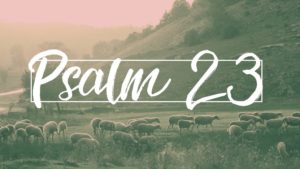
Psalm 22 is the Psalm quoted most often in the New Testament, but Psalm 23 is probably most often quoted in conversation. It is worth committing to memory for regular meditation. It will help guard your heart from covetousness, anxiety, and discontent.
Who do you look to for salvation? For care? For guidance. David, the Shepherd-King, looks to the LORD to be His Shepherd-King.
This Psalm puts on display Who the Lord is in the life of the believer. Shepherds in the East guarded their sheep, called them by name, led them, fed them, ensured that they were watered, rested, and provided for. He protected the flock from predators. He searched for those who went astray and rescued them. The Lord is more than adequate for every need.
In fact, the Names of the Lord are reflected in this Psalm:
Yahweh Jireh- the Lord will provide (Gen. 22:14). “I shall not want.”
Yahweh Shalom- the Lord our peace (Judges 6:24). “He leads me beside still waters.”
Yahweh Rophe- the Lord who heals (Exodus 15:26). “He restores my soul.”
Yahweh Tsidkenu- the Lord our righteousness (Jeremiah 33:16) “He guides me in paths of righteousness.”
Yahweh M’Kaddesh- the Lord who sanctifies (Leviticus 20::8). “He anoints my head with oil.”
As shepherds and sheep look back on the faithfulness of God’s care each day, they can confidently affirm these facts:
Psalm 23:6 6 Surely goodness and mercy shall follow me all the days of my life, and I shall dwell in the house of the LORD forever.
PROVERB FOR TODAY
Proverbs 5:22-23 22 His own iniquities will capture the wicked, and he will be held with the cords of his sin. 23 He will die for lack of instruction, and in the greatness of his folly he will go astray.
This proverb reminds us of the deceitfulness of sin. “The wicked man is doomed by his own sins; they are ropes that catch and hold him.” The way is hard for the wicked (Proverbs 13:15).
PRAYER: How grateful we are that You are our Father, our Lord, and our Shepherd. We rest in Your faithful provisions, knowing that we are Your people and the sheep of Your pasture. Even when we are confronted with our lack, our hardships, and adversities, even when we are in the presence of our enemies, You furnish us at Your table with that which will strengthen us. Thank You for Your comforting presence that quiets and satisfies our souls!
Pastor David

